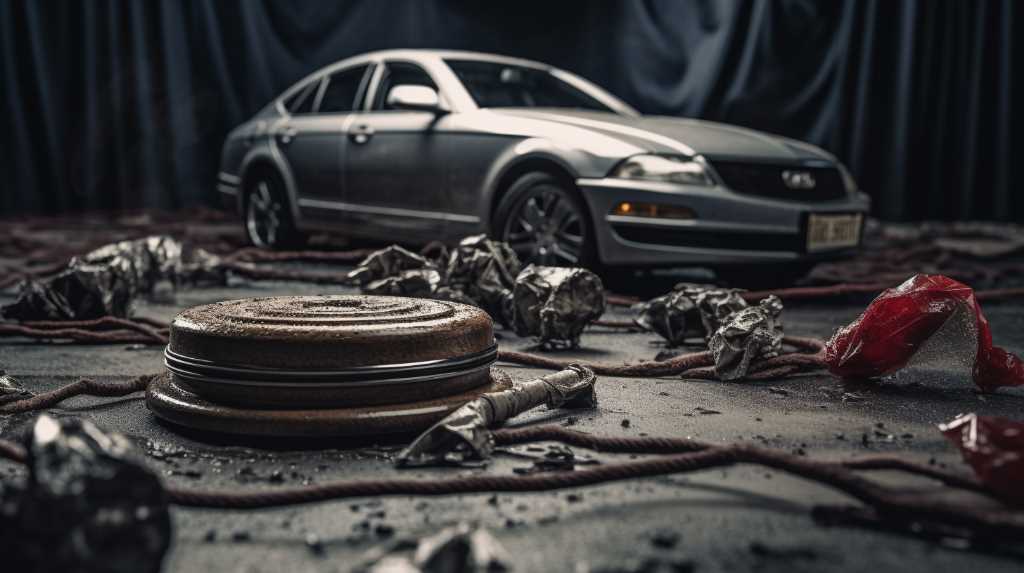
Car crashes happen often and make people wonder if they are crimes or not. Whether a car crash counts as a crime depends on a few things, like if someone meant to cause the crash, was careless, or took a big risk.
Most of the time, car crashes are treated as legal issues where someone has to pay for the damage. But, if a driver breaks the road rules or acts in a way that’s clearly unsafe, it can become a crime.
It’s important to know the difference between being responsible for a crash in a legal way and being guilty of a crime. This guide will help you understand when a car crash is just an accident and when it could be a criminal act.
Understanding Legal Definitions
In law, a car crash becomes a crime if someone breaks traffic laws or drives recklessly, is under the influence of alcohol or drugs, or leaves the scene of the accident. The key difference between a minor legal issue and a serious crime depends on whether the driver meant to cause harm, was careless, or ignored safety.
Not every traffic problem becomes a crime; many are just about paying for damages caused. But if a driver deliberately puts others in danger, like driving drunk, they could face criminal charges. This makes sure that the law’s reaction matches how serious and what kind of mistake a driver made.
Distinguishing Civil Vs. Criminal Liability
Understanding the Difference Between Civil and Criminal Responsibility
When someone causes a car accident, they might have to pay for the damage (civil liability) or they could face criminal charges if they broke the law on purpose or were very careless.
In civil cases, like when someone sues another person for causing an accident, the person who got hurt has to show that the other driver wasn’t careful enough, which led to the injury or damage. They might get money to cover medical bills, fix their car, or other costs.
On the other hand, criminal responsibility comes into play when someone’s driving is so bad that it breaks serious traffic laws. The government’s lawyer, called a prosecutor, has to prove the driver is guilty without any doubt, which is a lot harder than in civil cases.
If found guilty, the driver could get fined, have to do community service, lose their driving license, or even go to jail. This shows that society doesn’t accept unsafe driving.
The Role of Intent in Accidents
Whether a car crash is considered a crime can depend on if the driver meant to cause the crash. Intent matters a lot in criminal law because it shows what the person was thinking. If someone causes a crash by being careless, they might be sued in civil court, but it’s not usually a crime unless they were very reckless or broke traffic laws.
On the other hand, if someone uses their car on purpose to hurt someone, that’s clearly a crime. To figure out intent, lawyers look at how the driver acted, what they said, and what was happening before the crash. This helps tell the difference between a simple accident and a crime.
Consequences of Negligence and Recklessness
If you drive carelessly or recklessly and cause a crash that hurts someone or damages property, you could be charged with a crime. The law looks at the difference between a simple mistake and serious, dangerous behavior that puts others at risk.
If you’ve been really careless or reckless, you might have to face tough penalties, including paying fines, losing your driver’s license, or even going to jail, depending on how bad the accident was and how much you were at fault.
Judges look at what you did compared to how a careful driver should act and decide your punishment based on that.
Traffic Violations and Criminal Charges
When it comes to car crashes, some traffic violations can turn into criminal charges. This happens if someone acts in a way that clearly doesn’t care about other people’s safety or if they cause a lot of harm to people or things. These kinds of actions are more serious than simple mistakes.
For instance, if someone recklessly drives too fast or drives drunk and someone dies because of it, they could face vehicular manslaughter charges. These are very serious charges and they mean the person will have to go through a strict legal process.
Also, if a driver hits something or someone and then runs away on purpose, they could be charged with a felony, which shows how serious it is to try to avoid taking responsibility for what happened.
Conclusion
In simple terms, whether a car accident is a crime can depend on if someone meant to cause it, was careless, or acted without concern for others’ safety. If a driver breaks traffic laws in a serious way, they might face criminal charges. This is because the law looks closely at people’s actions to make sure they are held responsible in a way that matches what they did. So, the legal system carefully checks the details of a car accident to decide if it counts as a criminal act.
For example, if someone was driving way over the speed limit and hit another car, this could be seen as reckless and lead to criminal charges. On the other hand, if it was a minor bump where both drivers were following the rules, it’s usually handled as a civil matter, not a crime.